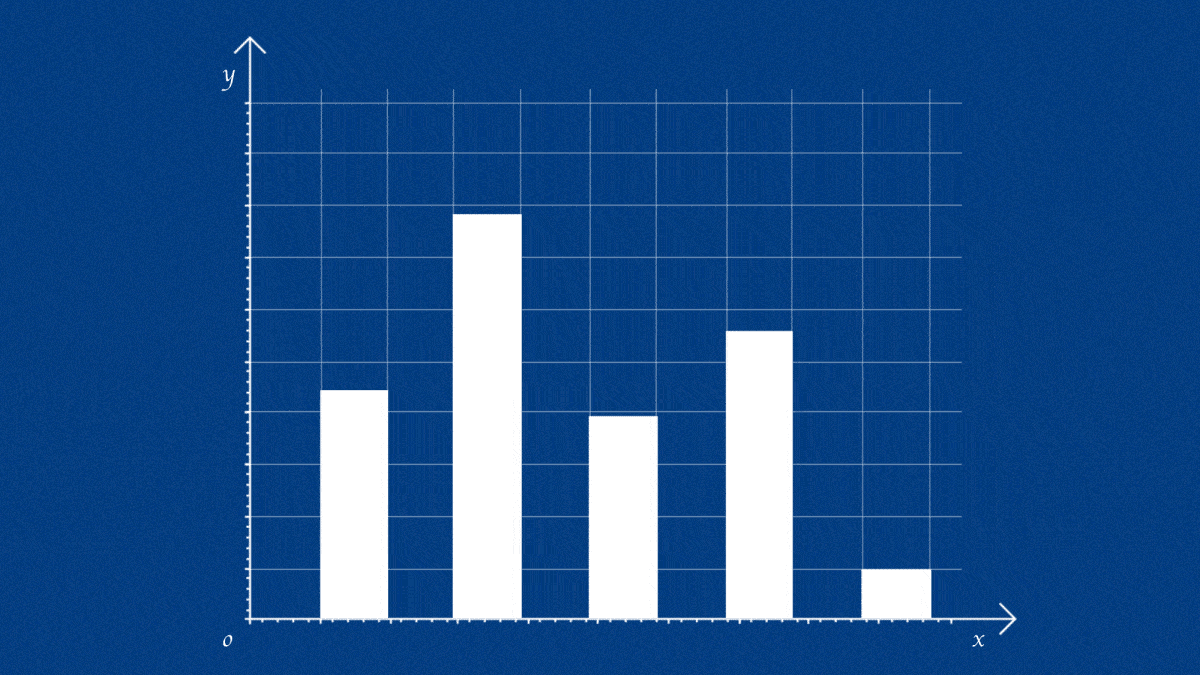Mark and David Geier were a father-and-son team of researchers who operated on the fringes of the scientific establishment. They were known for promoting a controversial treatment for autism, and for publishing papers on the purported harms of vaccines that experts dismissed as junk science. In 2004, the CDC accused them of violating research protocols. In 2012, the state of Maryland sanctioned them. And in 2025, Health and Human Services Secretary Robert F. Kennedy Jr. tapped one of them to investigate alleged wrongdoing in a crucial CDC database.
For years, Kennedy has claimed that the database, which tracks adverse reactions to immunizations and is known as the Vaccine Safety Datalink, once contained vital information about vaccine safety—and that this information has been withheld from the public, scrubbed from the record, or otherwise manipulated. He wants David Geier to investigate it because he and his late father, a physician, studied it in the early 2000s, after they applied through a CDC program that allows researchers outside the government to access certain data sets.
When the Geiers were first allowed into this trove of millions of anonymized health records, they were supposed to be carrying out a safety study of the DTaP vaccine. But the CDC found that they were instead conducting unauthorized analyses to hunt for a link between the vaccine and autism, and risked breaching patients’ confidentiality in the process; the agency revoked their access. (At the time, the Geiers disputed the charge that they had endangered anyone’s personal information, writing in a 2004 letter to an institutional-review-board administrator that they held the “utmost regard” for patient confidentiality.) Even after they were ousted, the Geiers used information they’d apparently held on to from that database to publish a series of scientific papers advancing the widely discredited theory that thimerosal, a mercury-based preservative once common in childhood vaccines, is linked to autism, among other conditions.
[Read: The U.S. is going backwards on vaccines, very fast]
Researchers in the field have long criticized the Geiers’ methodology as sloppy, and noted that their conclusions are at odds with those of numerous higher-quality studies. Since March, when The Washington Post reported that David Geier had been brought into the Department of Health and Human Services, his and his father’s work has come under renewed scrutiny. One scientist found that several of their papers—based on information from the very CDC database that Kennedy has tasked Geier with investigating—contain a statistical error so fundamental that it casts doubt on Geier’s abilities and intentions in assessing data. That scientist and another I spoke with couldn’t believe that some of Geier’s work had ever been published in the first place.
David Geier is currently listed as a senior data analyst in HHS’s staff directory, though what exactly he’s doing for the department is unclear. The Wall Street Journal has reported that Geier is using his new position to continue his search for a link between thimerosal-containing vaccines and autism. New York magazine floated the possibility that he will attempt to repeat a study from the early 2000s that anti-vaccine activists cite as proof that inoculations harm developing brains. Kennedy has denied that Geier is running the agency’s project to find out what causes autism, and testified that he has instead been hired by a contractor to determine whether information disappeared from the database. (Mark Geier died in March, and David Geier did not respond to interview requests. Reached for comment, an HHS spokesperson pointed to a lengthy X post by Kennedy in which he defends Geier’s record and notes his “extensive background as a research scientist.”)
Under any other administration, Geier’s history would almost certainly have disqualified him from any role at HHS. In the mid-2000s, after Mark Geier had established a profitable sideline of testifying as an expert witness in lawsuits that alleged injury from vaccines, the father and son claimed to have discovered a method of treating autism. What they touted as a miracle drug was Lupron, a testosterone-suppressing medication used in many cases of premature puberty. They ran a laboratory out of the basement of their Maryland home and administered the drug to children based on their unfounded theory, advertising their supposed breakthrough on the autism-conference circuit. In 2012, Mark, a physician, was stripped of his license, and David was sanctioned for practicing medicine without one. (The Geiers sued the Maryland Board of Physicians in 2012 for releasing information about medications Mark Geier had prescribed to family members. They were awarded a total of nearly $5 million for the invasion of their privacy and attorneys’ fees, but that judgment was reversed after a different court ruled that Maryland Board of Physicians members were immune from such claims.)
[Read: RFK Jr.’s autism time machine]
The Geiers’ work is well known among autism researchers, though not well respected. “They were seen as not representing the best of autism science,” Craig Newschaffer, a Penn State scientist who has studied how genetics and environmental factors contribute to autism, told me, putting it more gently than others I spoke with. Marie McCormick met the Geiers when she chaired a 2004 review of immunization safety by the Institute of Medicine (now known as the National Academy of Medicine), a nonprofit group that advises the federal government. McCormick, now an emeritus professor at Harvard’s School of Public Health, recalled that the Geiers’ presentation had “really made no sense”: It was a slideshow of vaccine vials with labels indicating that they contained mercury, but it didn’t have much else in the way of evidence. The committee’s report identified a host of “serious methodological flaws” in the Geiers’ research, such as a failure to explain how they had sorted their subjects into groups.
The Geiers’ work from the 2010s likewise has such glaring flaws that the experts I spoke with were baffled as to how the studies had been published at all. Jeffrey Morris, a biostatistics professor at the University of Pennsylvania, recently examined a series of papers on which the Geiers were authors that used data from the Vaccine Safety Datalink. One representative 2017 study purportedly showed that the hepatitis B vaccine was associated with an increased risk of autism.
Morris quickly noticed that the paper’s approach rendered its findings meaningless. It compared a group of children with autism to a control group of children without the diagnosis, to see how vaccination rates differed between the two. But these groups of children also differed in another crucial way: The children diagnosed with autism were born during the eight-year span from 1991 to 1998, whereas the control group—children not diagnosed with autism—were born in 1991 or 1992.
That’s more than a minor inconsistency. In 1991, the CDC’s vaccine-advisory committee recommended that all infants in the United States receive the hepatitis B vaccine, and so the percentage of vaccinated children rose steadily throughout the decade, from fewer than 10 percent to approximately 90 percent. That meant that babies born later in the ’90s (who were overrepresented in the autism group) were very likely to have gotten the shot, whereas those born earlier in the decade (who were overrepresented in the control group) were not. By picking a control group in which relatively few kids would have been vaccinated, and an autistic population in which most were, the Geiers made finding a connection between immunization and autism inevitable.
[Read: The conversations doctors are having about vaccination now]
Using this approach, you could blame the vaccine for all manner of maladies. According to Morris, the Geiers did exactly that in at least nine papers, published from 2015 to 2018, that used data from the vaccine-safety database. One of their studies linked hep-B vaccination to childhood obesity. Others showed an association with tic disorders, emotional disturbance, and premature puberty, among other conditions, some of which rose during the ’90s and early 2000s at least in part because of new diagnostic criteria and increased awareness. That likely also explains why autism rates began to climb significantly in the ’90s.
Many flawed scientific papers include a regrettable but understandable oversight, Morris told me, but the Geiers employed “an absolutely invalid design that biases things so enormously that you could throw out the results of all these papers.” Newschaffer reviewed Morris’s critique and told me he doesn’t believe that a study with such a serious problem should have been published in the first place. “I would characterize that as a ‘miss’ in the peer review,” he said. (I also contacted Dirk Schaumlöffel, the editor in chief of the Journal of Trace Elements in Medicine and Biology, which published the Geiers’ paper connecting the hep-B vaccine to autism. He took issue with Morris’s “polemical allegations” and defended the paper, noting that it “does not argue against vaccination, but merely questions the role of thimerosal.” He told me that he would prefer that the matter be debated in the pages of his journal.)
If David Geier were merely an independent researcher publishing in lesser-known journals, his errors, although egregious, would be of little more than academic concern. But his influence on Kennedy runs deep. In 2005, Kennedy highlighted the Geiers’ research in an essay outlining how he’d come to believe that thimerosal-containing vaccines could cause autism. He wrote about them again that year in “Deadly Immunity,” an article—eventually retracted by both Salon and Rolling Stone after multiple corrections and intense criticism—that alleged that government health agencies had covered up evidence indicating that thimerosal in vaccines was to blame for the rise in autism rates. In his 2014 book, Thimerosal: Let the Science Speak, Kennedy cites the Geiers dozens of times, portraying them as determined truth-tellers battling uncooperative government agencies—the very ones Kennedy has now been appointed to oversee.
[Read: The neo-anti-vaxxers are in power now]
Thanks to Kennedy, Geier seemingly is being handed the keys to the same database he’s proved himself unfit to study. People who are familiar with Geier’s history worry that he’ll use his position on the inside not to defend the truth but to resurrect thoroughly debunked claims, twisting the data to support what he and Kennedy have long believed.

